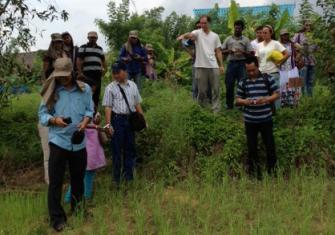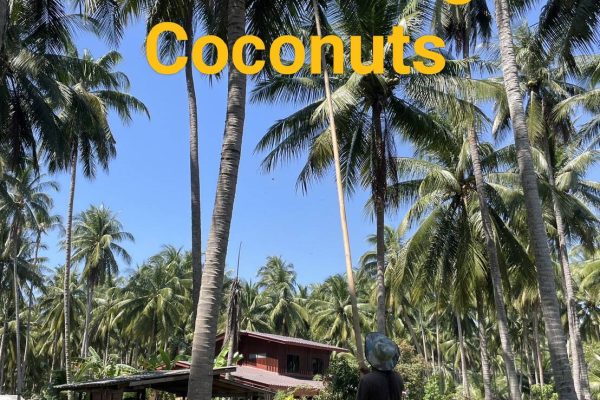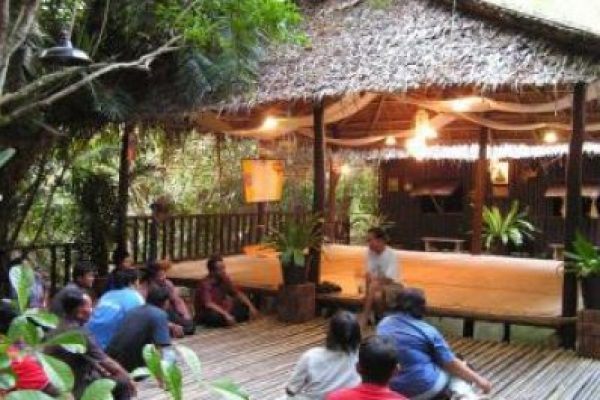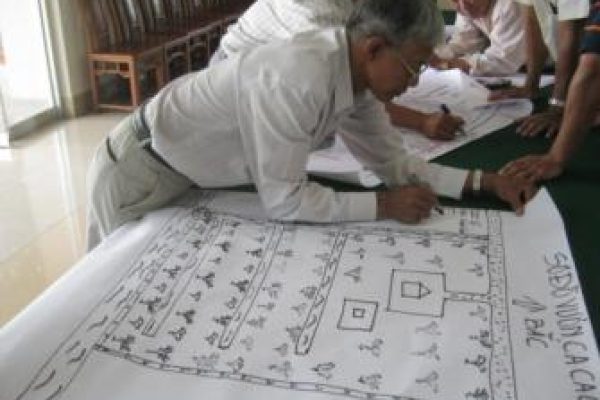
Earth Net Foundation hosted this second exchange with it 7 partner organizations from India, Indonesia, Sri Lanka, Cambodia and Philippines from 15- 20 July 2013. After one day in Bangkok to gather together and review work the partners had done in initiating pilot projects, looking at risk, vulnerability and potential adaptation options to test, the group headed by train to Ubon and on to Yasothorn, where Earth Net first started it climate change adaptation work around rice chain.
The 4 days gave chance to visit ENF’s Organic Agriculture Center, Yasothorn, the Green Net Packing Plant, Nature Care Club’s Rice Mill, the Thursday Green Market in Kut Chum and 4 organic farms associated with ENF climate change adaptation work. Aside from that there was much time to discuss and exchange ideas and the chance to stay with local organic farmers from the group. While the major focus of the meeting and exchange was to discuss farmer community-based gender-sensitive climate change adaptation, there was also a strong interest from the participants to review Green Net’s (and its associated farmer groups’) experience with organic rice supply chain.
All of the partners were already engaged on both issues and even while some, such as Kudumbam and CEDAC had joined from the first Organic Fair Trade Rice Chain Programme in 2006, developing their own successful organic rice supply chains linking their farmers to beneficial markets, with every step forward comes new challenges, so seeing and hearing from Green Net and Earth Net anew was valuable to provide ideas on how to address these challenges. Regarding climate change, being on the ground with farmers in Yasothorn when they were experiencing a dryspell of over a month, yet seeing how water management systems and other interventions were helping to provide other options and alternate income, helped all to see the sort of research and interventions we were talking about in concrete and applicable terms.
While this may not have been the original intention, as was presented by Ms. Varatip and the local extension staff, it looked clear that the success Green Net/ ENF and its associate farmer groups has had in doing climate change adaptation work, stems from having a strong and successful organic fair-trade supply chain partnership. The partnership is a basis of financial stability and strength and it is the basis of strong relationships and continuous learning exchange. Farmers and extension staff who have worked together for a number of years to develop good organic practices and meet organic standards, now work together to develop good adaptation strategies and link to local organic Green Markets. Many of these farmers who are economically successful as farmers and empowered are engaged in work that goes beyond just their livelihoods, such as the preservation and selection of many seed varieties, or developing and testing alternative energy systems.
If the GNC-ENF case is a model to follow, we see that success requires a foundation that provides those involved financial sustainability as farmers and a forum for continuous exchange and learning. From such a foundation, there is ample room to explore new areas as needed or appropriate, such as adapting to climate change stress or developing alternative local organic markets to increase income and link with consumers in the area.



